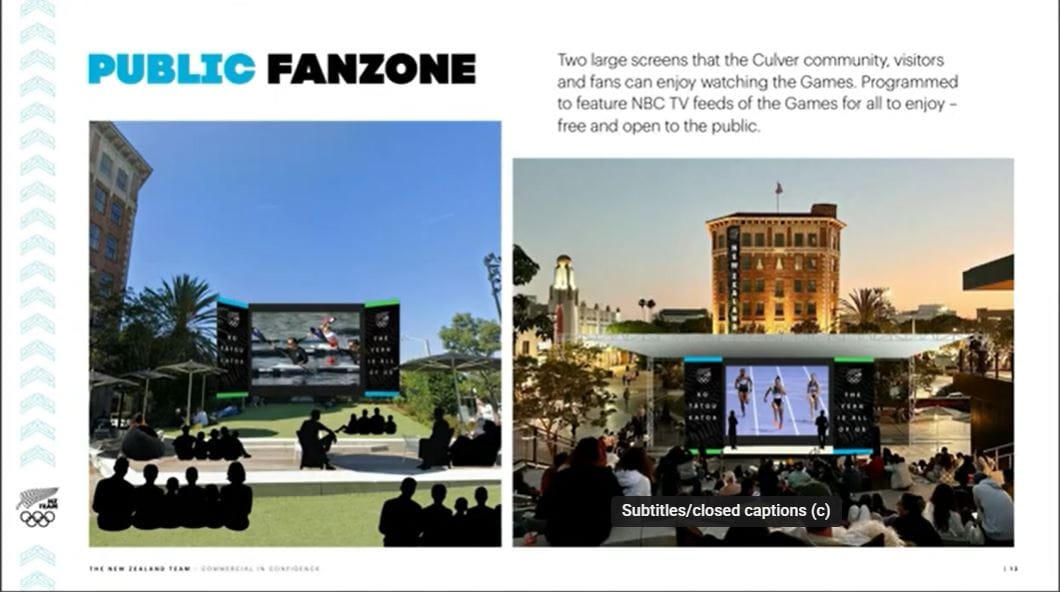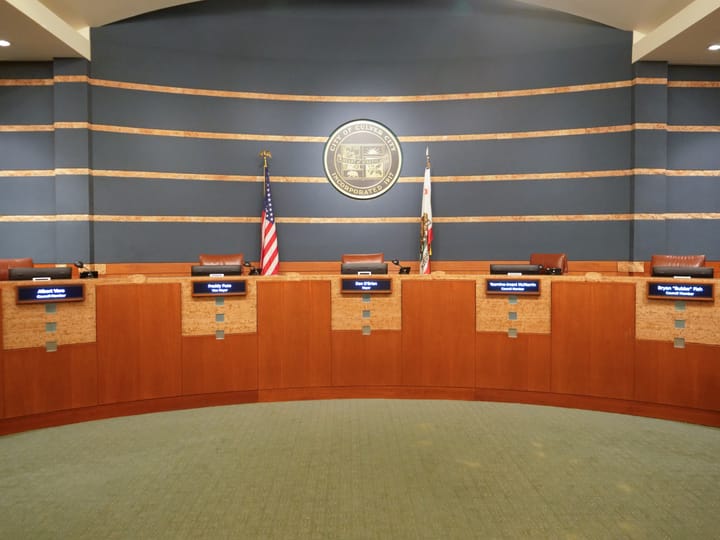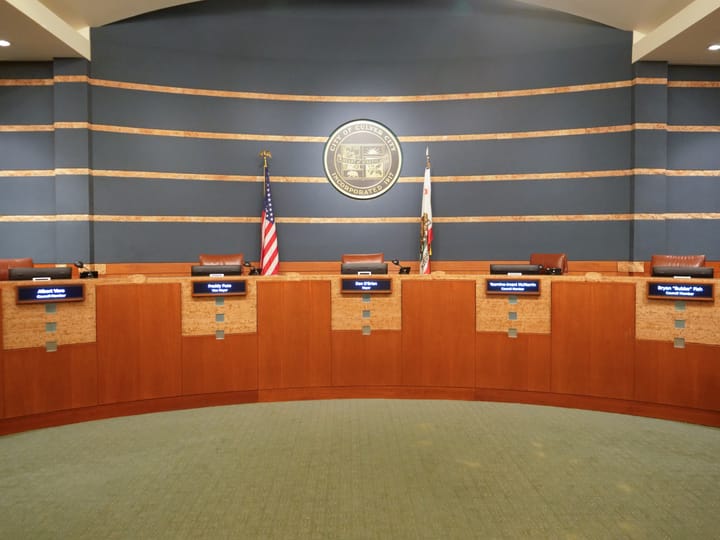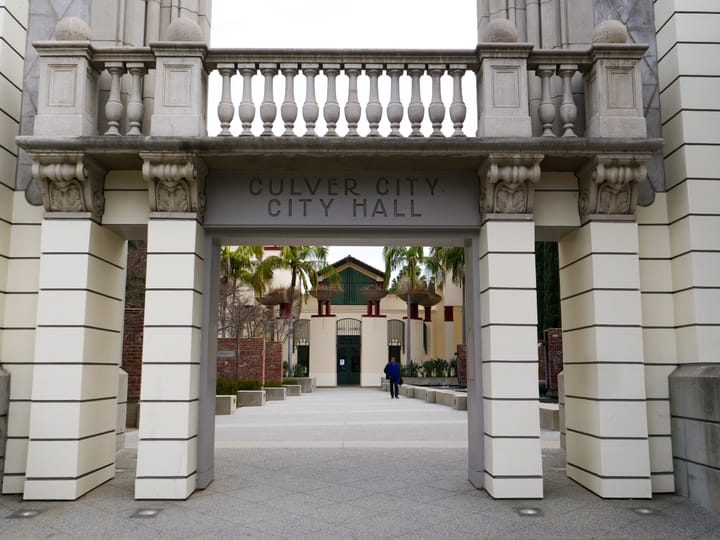Culver City continues talks to host New Zealand for 2028 Olympics
The council will make a decision on entering a legally binding agreement with the New Zealand Olympic Committee at its next meeting on September 29.

Culver City's work to bring the New Zealand Olympics to Culver City continues.
Originally presented with a recommendation from staff to enter a legally binding agreement to host New Zealand's Hospitality House and Fan Zone for the 2028 L.A. Olympic Games at Monday's city council meeting, the council instead approved a letter of intent to move forward with the commitment, but directed staff to present additional options to bring the event closer to cost-neutral at the next council meeting.
This move delays the potential decision to formally commit by entering a legally binding agreement to the September 29 meeting. Financial concerns were at the forefront of discussions surrounding the proposal, but members of the council were overall enthusiastic about reaching an amicable agreement with the New Zealand Olympic Committee.
The New Zealand Olympic Committee (NZOC) would commit to providing several facilities for the zone under the current agreement, including monitors for visitors to watch The Games on, audio systems, and a stage for performances and other programming at the Town Plaza in Downtown Culver City.
Culver City's cost estimate of approximately $717,000 to host New Zealand for the L.A. Olympics running July 14 to 30, 2028, was seen as a significant price tag, especially considering the lack of open street plans in the estimate.
An open streets event — where streets are closed to vehicular traffic — would enable Culver City's Downtown Business Association to activate the area dynamically for its businesses, DBA Executive Director Darrel Menthe said at the meeting. Creating an open streets event would require street closures, further increasing costs beyond the $717,000 presented initially.
Assistant City Manager Jesse Mays said that based on the costs for the Culver City Car Show, it could cost $25,000 a day — or $475,000 over the estimated 19-day duration — to close the streets in a similar manner.
The costs and the uncertainty of the future caused some hesitancy for council members. While this discussion was held immediately following the ratification of Measure CL, concerns over the city's structural deficit lingered.
Councilmember Bubba Fish pointed to the fact that the expenses are for an event currently estimated to last 19 days. He noted that cost projections tend to increase over time, and NZOC Chief Commercial and Marketing Officer Jonny Errington also acknowledged that inflation will drive costs up.
Options to move towards cost neutrality — such as potential downsizing and opening the space to other countries — should be considered, Fish argued. Vice Mayor Freddy Puza also expressed concerns with costs potentially ballooning, and proposed adding a spending cap to the agreement.
The concentration of visitors in Culver City is expected to increase dramatically during the 2028 Olympics. While this means Culver City will generate increased revenue whether or not the Fan Zone happens, some costs included in the estimate are unavoidable.
"During the Olympics, all hotels in the county, I think, are going to be booked up," Mays said at the meeting. "I can't imagine [Culver City hotels] not being at 100% capacity, with or without New Zealand."
Councilmember Yasmine-Imani McMorrin argued that while Olympic-themed programming is expected by residents, rejecting such a monumental opportunity due to cost is not unprecedented.
McMorrin highlighted Santa Monica's decision to pull out of talks to host beach volleyball for the 2028 Olympics. The decision was prompted by financial forecasts that estimated the city would incur a net cost of $1.45 million despite the projected 700,000 visitors expected to bring more than $14 million in revenue.
"I hope we can bring that same level of nuance into our analysis here," McMorrin said.
Having just returned from the World Para Fencing Championships in Iksan, South Korea — one of Culver City's Sister Cities — councilmember Albert Vera saw firsthand the impact that hosting an international event brings to a city.
"[Iksan Mayor Jeong Heon-yul] said if he had known how impactful this was to the community, he would have planned differently," Vera said. "The economic impact it brings to the community is truly amazing."
Mayor Dan O'Brien said that he has connected with 32 countries with an interest in coming to Culver City. New Zealand's choice of Culver City for its Hospitality House and Fan Zone has "the gravitational pull of the sun," O'Brien remarked at the meeting.
"We are likely not going to see this [opportunity] again in our lifetime," O'Brien said.
He also advocated for open streets, particularly if other nations are interested in using Culver City. However, he said, while there is interest in different spaces in the Downtown area, such as Media Park, those nations will want the room to have their own distinct space.
"Maybe even if it's only New Zealand, we do it," O'Brien said of open streets. "But if we have more nations coming to Downtown, it is definitely something we should strongly consider."
O'Brien echoed a sentiment made by Vice Mayor Freddy Puza: the Olympics are, in public commenter Jeannine Wisnosky Stehlin's words, "a fundraiser's dream."
Cost projections do not include the expected income from sales tax and transient occupancy tax, which would make the net cost to the city projected at around $967,000 based on what was presented Monday night.
It also does not include these potential opportunities through ads, sponsorships, and other Olympic-related programming opportunities that could come with hosting New Zealand's Hospitality House.
Staging the decision in multiple phases to gauge revenue opportunities would help the council make a more informed decision, NZOC CEO Nicki Nicol argued. She pointed out that the decision to close streets could be impacted by whether or not other countries would be in Culver City to potentially use those streets.
"You might look at open streets more favorably if…someone was at Media Park," Nicol said at the meeting. "Trying to solve everything here tonight does feel like a really big elephant that we are trying to swallow."
The council decided to approve a letter of intent and direct staff to come back with a legally binding document, along with options for the city to generate revenue or cut expenditures. Fish also emphasized the general consensus shared at the meeting that the event planning should include an open street aspect.
Nicol said that a deadline for a decision would help alleviate some of the NZOC's concerns with not reaching an agreement on Monday night. Mayor O'Brien wanted to move as quickly as possible, setting the deadline to September 29, the next regularly scheduled city council meeting.
The motion to give this direction passed unanimously.




Comments ()